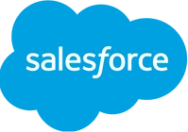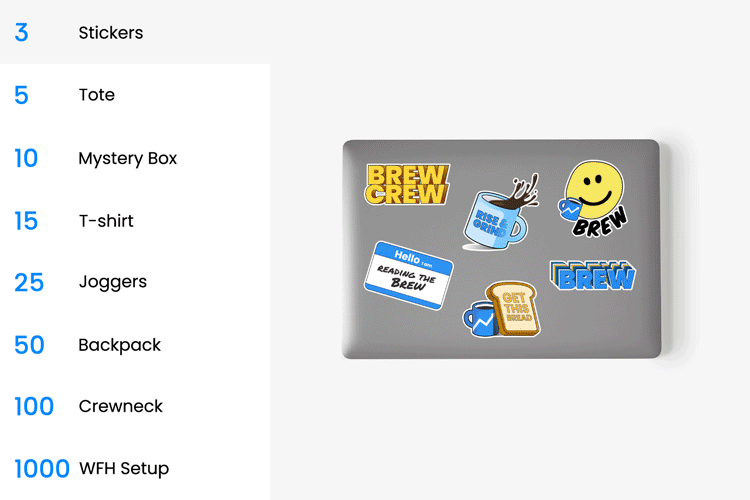Happy Thursday. And happy National Spaghetti Day. If you’re observing Dry January, does vodka sauce count? Asking for our friends at Heinz and Absolut.
In today’s edition:
—Alyssa Meyers, Jasmine Sheena
|
|
Clive Rose/Getty Images
We’re only a few days in, and 2024 is already shaping up to be a big year for sports marketing.
It’s an Olympic year, and execs in the sports space predict that brand interest—especially individual athletes—will continue to grow beyond that.
If marketers could see the future, their fantasy football teams would be doing much better, and they’d have sponsored at least one of the Kelces a year ago. We asked them to give it a shot, anyway. Here are two of the five major trends that 15 of them predicted would shape sports marketing this year.
Olympic dreams: Marketers, if you’re not thinking about the 2024 Summer Olympics in Paris yet, time to get a move on. Even brands that aren’t in the Olympic Partner Programme have an opportunity to get in on the games by working directly with athletes, though Jeff Ehrenkranz, COO at sports marketing agency Allied Sports, said it’s wise not to wait until the last minute.
“The brands that do the best with the Olympics are the brands that don’t see it as a 17-day event,” Ehrenkranz told Marketing Brew. “They start their campaigns and their engagement of fans well in advance. One of the ways to do that is [through] athletes, because the athletes’ stories are the long-term, engaging thing.”
Andres Cardenas, CMO of Minute Media, the digital content company behind sports publications including The Players’ Tribune and 90min, also advised brands to “focus on the athlete,” especially if they’re trying to connect with younger audiences.
Everybody’s business: Even outside of the Olympics, sports execs predict that brands will invest more in individual athletes as opposed to more traditional team- and league-level sponsorships.
As brand interest in athletes grows, so does athletes’ ability to ask for more from those partnerships. Athletes are increasingly business people in their own rights, according to Seb Tomich, CCO of The Athletic, which means athlete deals could get more expensive. But that doesn’t necessarily mean brands with smaller budgets will be cut out of the space.
“My sense from looking around the industry is that athletes want to have a piece in the business success of the products that they represent in a way that maybe was reserved for the select few before, and now is becoming more commonplace,” Tomich said. “I would imagine that is going to create a lot of opportunity for upstart brands who are willing to give up equity to the athletes they work with.”
We’ll share more tomorrow, but if you can’t wait that long, read all five predictions here.—AM
|
|
PRESENTED BY SALESFORCE MARKETING CLOUD
|
Building customer trust doesn’t happen overnight, and new tech doesn’t always help. Tools like generative AI have clear benefits, but they also raise more than a few ethical questions.
That’s why Salesforce released their Trends in Ethical Marketing guide. The report shows current trends—all backed by research—in using AI tools in marketing while avoiding any sus moves.
Their secret? Prioritizing the people behind the marketing process. Other secrets in their guide include:
- a snapshot and statistics of where the marketing industry is today
- research of sentiment from consumers
- ways that businesses can balance risk and reward with ethical principles
Get the full guide for all the deets on how to achieve trust, safety, and privacy through ethical marketing products and practices.
|
|
Francis Scialabba
With the Iowa caucuses around the corner, the 2024 US presidential election is ratcheting up fast as Republican candidates jostling for their party’s nomination pour money into political advertising.
This year’s election cycle is already projected to see the highest political ad spend of all time, and new data from ad intelligence firm Vivvix’s CMAG division found that $154 million had been pumped into 2024 US presidential election ads before the new year even began.
We talked to people from two political advertising firms, DSPolitical and Blue State, as well as the VP of political sales at LG’s Ad Solutions division, to learn more about the trends in political advertising that may define the impending elections. Here are some of the takeaways.
AI is going to transform political marketing in more ways than one.
Keith E. Norman, VP of political practice sales at LG Ad Solutions: Let’s say a political candidate wants to test whether a message on energy, or a message on women’s reproductive rights, or a message on the economy may be more effective when they want to talk about their platform and talk about their issues to voters. I could see using AI to create very quickly three different ads that could be tested in a limited [way], not for broadcast or not for streaming [capacity,] but just to see again which one of those ads would be more impactful.
Mark Jablonowski, president and CTO of DSPolitical: I think you’re going to see a lot of organic potential disinformation coming from generative AI. It’s less of a concern on the paid media side. It’s great the platforms are requiring disclosure of generative AI in paid advertising, but a lot of the concerns are going to come around, ‘How are you able to verify this organic clip that is going viral is actually real?’ That’s going to put campaigns in a tough spot.
Continue reading here.—JS
|
|
Justin Setterfield/Getty Images
Women’s sports like soccer, tennis, and basketball have built new audiences in recent years, opening new avenues for brands to connect with sports fans. But misunderstand the growing fanbases for women’s sports, and marketers may just strike out.
Rain the Growth Agency, a full-service agency with a practice dedicated to women’s sports, sought to break down the kinds of content fans of women’s sports are watching, where they’re watching, and why they’re engaged, all of which may help “further marketers’ understanding of the women’s sports fan profile and what fandom really means in this space,” the agency wrote in a recent report based on a survey of almost 1,000 US adults ages 18–74 who said they engage with sports content.
The fans: Women’s sports fans tend to be “affluent and educated,” Rain found.
- Majorities have at least a college or associate degree, live in urban or suburban areas, are married, and have two or more people in their households.
- Forty-eight percent said they’re Democrats, and 37% have household incomes of at least $100,000.
The sports: FIFA soccer was the most watched women’s sport in the 12 months leading up to the survey, though the report points out that data could be skewed because the survey was fielded during the Women’s World Cup, from Aug. 2–4. Tennis, college basketball, the WNBA, gymnastics, volleyball, and the NWSL follow, in descending order of popularity.
- While the WNBA has fans across generations, according to Rain, it’s the favorite sport to watch among Gen Z fans.
- Millennials and baby boomers most prefer FIFA women’s soccer, Rain found, while the largest share of Gen Xers said they’d watched women’s tennis in the year leading up to the survey.
-
“While not in the top four, LPGA golf is a notably popular sport for boomers,” the report noted.
The platforms: Linear TV is the leading outlet for viewing women’s sports, but that’s closely followed by streaming services, and again differs based on generation, the survey found.
- A majority of Gen Z respondents reported watching women’s sports primarily on social media platforms.
- Nearly equal shares of millennials said they watch on social and on streaming.
- Gen X and boomers tend to watch mostly on linear TV.
Read more here.—AM
|
|
Morning Brew
There are a lot of bad marketing tips out there. These aren’t those.
Get professional: Tips to help spruce up brand LinkedIn pages.
Take a joke: Are you thinking about leaning into comedy this year? Here are 55 funny commercials from the past five years to get inspired.
Buckle up: It’s hard out here for a marketer. It’s okay if you need some tips for navigating 2024.
Tools + trust: You don’t want to miss Salesforce’s new Trends in Ethical Marketing guide. Download your copy to learn how your brand can preserve trust and utilize AI in marketing. Insights right here.* *A message from our sponsor.
|
|
ADVERTISE
//
CAREERS
//
SHOP
//
FAQ
Update your email preferences or unsubscribe
here.
View our privacy policy
here.
Copyright ©
2024
Morning Brew. All rights reserved.
22 W 19th St, 4th Floor, New York, NY 10011
|
|








